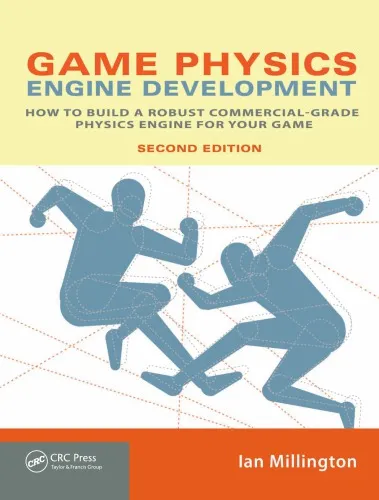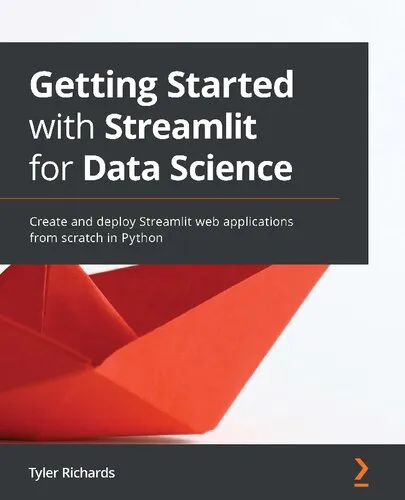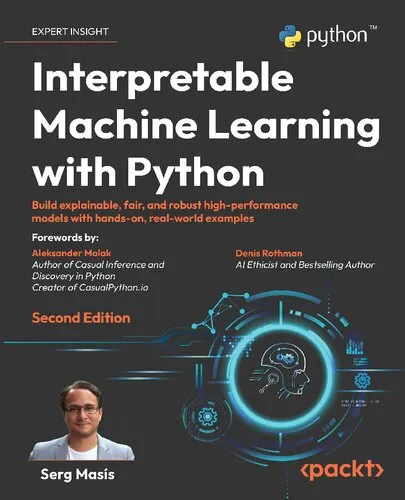Game Physics Engine Development: How to Build a Robust Commercial-Grade Physics Engine for your Game (Second Edition)
5.0
Reviews from our users

You Can Ask your questions from this book's AI after Login
Each download or ask from book AI costs 2 points. To earn more free points, please visit the Points Guide Page and complete some valuable actions.Related Refrences:
Introduction to "Game Physics Engine Development: How to Build a Robust Commercial-Grade Physics Engine for Your Game (Second Edition)"
Building a robust and efficient physics engine is one of the cornerstones of modern game development. "Game Physics Engine Development" by Ian Millington provides a comprehensive guide to creating physics engines tailored for commercial-grade games. This book not only demystifies the complex concepts of game physics but also offers practical, hands-on techniques for turning theory into practice. Whether you're a budding game developer or an experienced professional looking to deepen your knowledge, this book is an invaluable resource.
Detailed Summary of the Book
This second edition of Game Physics Engine Development takes you on a complete journey, starting from the foundational principles of physics and mathematics and progressing to the application of those principles in real-world gaming scenarios. The book emphasizes practical development, ensuring you not only understand the theory but also gain hands-on experience building a fully functional physics engine from scratch.
The book is meticulously structured, beginning with an introduction to the physics concepts central to engine development, such as forces, motions, and particle systems. It then delves into more advanced topics, including rigid body dynamics, collision detection, and resolution. Throughout the chapters, you'll learn how to implement each of these features step-by-step, backed by precise mathematical derivations and programming examples.
The second edition updates and expands upon the original, integrating new techniques and optimizations that align with modern game development practices. Special attention is given to creating engines that are both computationally efficient and scalable. The book also emphasizes modular and clean coding practices, ensuring the engine can adapt to the rapidly changing demands of gaming technology.
By the end of the book, readers are equipped with the knowledge to develop robust, flexible, and production-ready physics engines that can power a variety of games, from minimalistic indie projects to AAA-level titles.
Key Takeaways
- Understand the fundamental principles of physics applied specifically to games, such as linear algebra and Newtonian mechanics.
- Learn to implement critical systems like particle motion, rigid body dynamics, collision detection, and resolution.
- Develop commercially viable physics engines that meet real-world performance requirements for modern games.
- Master optimization techniques to ensure your engine is not only functional but also efficient and scalable.
- Follow step-by-step code examples that serve as building blocks for a complete physics engine.
Famous Quotes From the Book
"The goal of any game physics engine is not just accuracy, but stability—because a stable simulation is more important than a perfect one."
"Physics in games is not about recreating the universe, but about creating believable interactions that enhance the player's immersion and experience."
"Choosing the balance between realism and computational efficiency is a critical skill in game physics development."
Why This Book Matters
Physics lies at the core of many successful games, from simulating realistic car crashes to creating convincing character movements. Understanding how these systems work is essential for developers wishing to push the boundaries of game design. Game Physics Engine Development matters because it bridges the gap between technical theory and real-world implementation, offering a guide that is both accessible and rigorous.
Unlike many resources that either oversimplify or overcomplicate, this book strikes a fine balance by providing step-by-step instructions while maintaining a professional-grade level of detail. Moreover, by focusing on coding best practices, the book ensures that its teachings remain relevant and adaptable to advancements in gaming hardware and software.
For game developers, designers, and enthusiasts, this book stands as a definitive reference—one that equips its readers with a solid understanding of game physics and empowers them to innovate. In a field where precision and creativity intersect, Game Physics Engine Development continues to be a cornerstone for aspiring and seasoned developers alike.
Free Direct Download
You Can Download this book after Login
Accessing books through legal platforms and public libraries not only supports the rights of authors and publishers but also contributes to the sustainability of reading culture. Before downloading, please take a moment to consider these options.
Find this book on other platforms:
WorldCat helps you find books in libraries worldwide.
See ratings, reviews, and discussions on Goodreads.
Find and buy rare or used books on AbeBooks.
1460
بازدید5.0
امتیاز1
نظر98%
رضایتReviews:
5.0
Based on 1 users review
m36
June 8, 2025, 4:20 p.m.
great book on pc game development
Questions & Answers
Ask questions about this book or help others by answering
No questions yet. Be the first to ask!





![The Ultimate iOS Interview Playbook: Conquer Swift, frameworks, design patterns, and app architecture [Team-IRA]](https://s3.refhub.ir/images/thumb/The_Ultimate_iOS_Interview_Playbook__Conquer__29925.webp)







